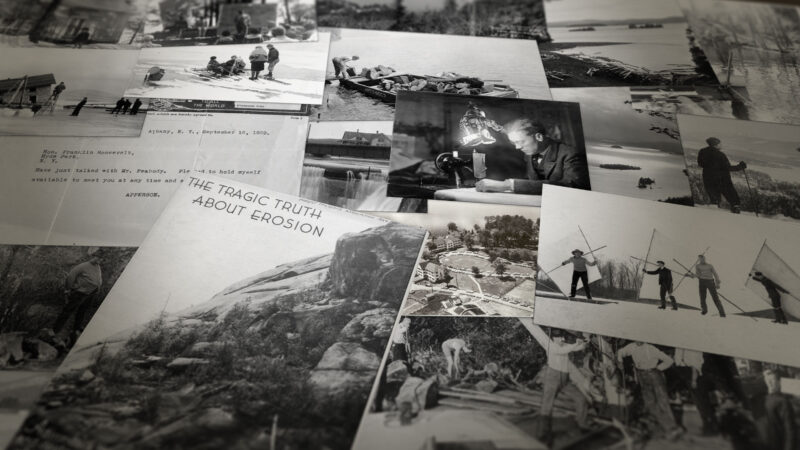- March 17, 1930 – Schenectady Gazette – Editorial –
Changing the Constitution
A constitution, whether it is national or state, constitutes the basic law of the area affected by it. Less important matters are cared for by statutes, which are comparatively easy to change. When a revision of the latter is suggested, it may amount to little. But any proposed change in the constitution, our basic law, deserves lengthy and careful consideration before action is taken on it.
There is before the legislature in Albany a proposal to change article seven, section seven, or the organic law of New York State. Favorable action by our legislators now merely means that the project is pushed forward so that later a final determination may be reached. But even before the initial step is taken there should be thorough consideration.”
Article seven, section seven of the state constitution provides, in brief, that our forest preserve lands shall never be disposed of or despoiled, but shall ne kept as a recreation found for the use of the people. Attempts have been made in the past to weaken this provision, with slight if any success.
The proposed amendment would permit lands purchased in the future outside of the state park limits to be used in a commercial manner, in the discretion of the state officials.
The amendment is proposed ostensibly as a part of the reforestation program. But we find at the outset that the state now possesses more land than it can reforest in many years to come without adding to its holdings. On that ground alone it would appear unnecessary to tinker with our basic law, for we can keep busy for a generation and more setting out trees on ground already owned by the public and needing such attention.
Again, there is a grave danger in the amendment in this respect. The state, having power to take over individual property at any time, might take advantage of the opportunity to condemn valuable acreage and then sell the timber on it. In short, it would encourage the state to go into business, and surely the less the state does this, the less it interferes with private ownership and development, save possibly of natural resources, the better it will be for all concerned.
When the time comes, if it ever does, that the state can reforest more land than it now possesses, we can consider extending its holdings and possibly changing methods. Until then it seems unwise to tinker with the constitution, and to open up a field of possible exploitation without material benefit to the people.
